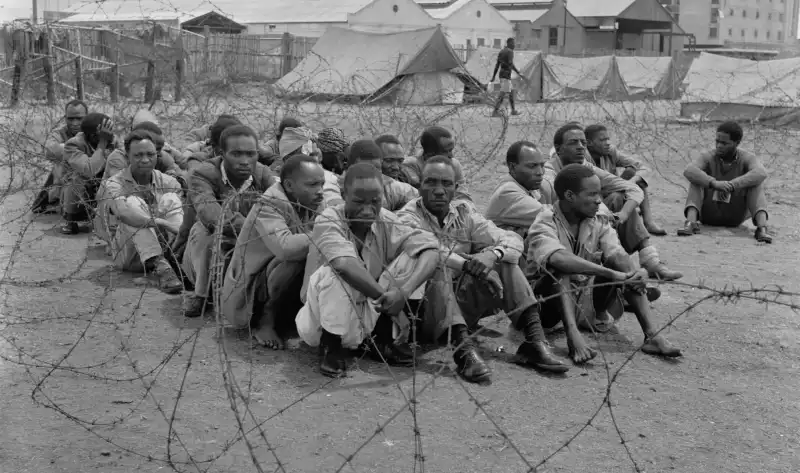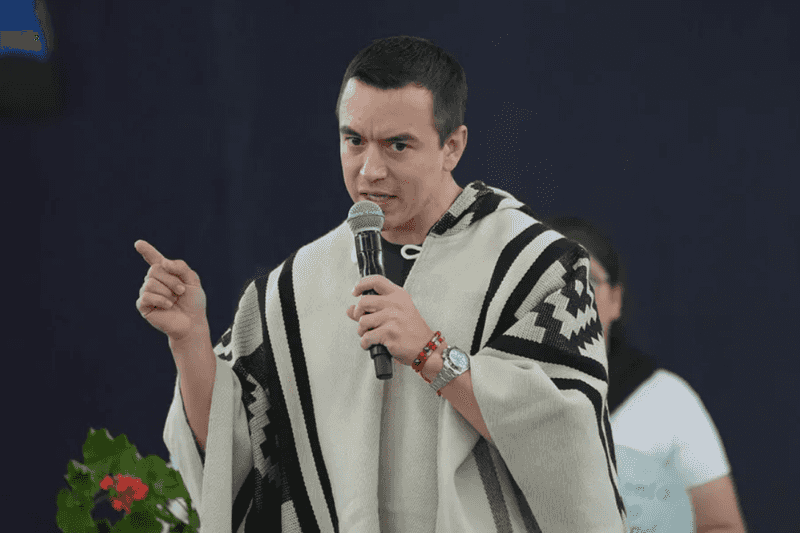
“Controversial” was the euphemism most commonly used in obituaries describing the life and legacy of General Sir Frank Kitson – the most highly decorated British soldier of his generation who died, aged 97, on 2 January.
“No general in recent times has provoked more intense and sustained controversy than Frank Kitson, a short and ramrod-straight figure with a jutting chin, nasal voice and dislike of small talk,” said The Times obituary.
The Daily Telegraph opined: “He was regarded as one of the most capable and controversial soldiers of his generation, and his expertise in counter-insurgency operations was probably unrivalled”.
Little focus in the many plaudits from the predictable sources was directed at the politicians and government spooks who unleashed him onto the people of Kenya, Malaya, Oman, Cyprus and Northern Ireland – all of whom he appears to have viewed as little more than laboratory rats to test his military theories.
A member of the Order of the Bath for the past 43 years (his many other ‘honours’ are too many to list) Kitson rose to become Commander-in-Chief UK Land Forces from July 1982 and Aide-de-Camp to Queen Elizabeth II from 1983-1985.
His 1970s role in the early days of the violence in Northern Ireland has had the most attention. But as recently as 2006 US General David Petraeus (then commander of US Central Command and coalition forces in Iraq) visited Kitson at his home in Devon, apparently for advice.
For those of a right-wing persuasion he was a far-seeing prophet of counter-terrorism. For those on the left, he was a bogey-man: one left-wing journal went as far as describing him as the “Failed Boot Boy of Empire”.
This, however, fails to hold his masters in London to account.
Nairobi to Belfast
As early as 1972, Kitson’s fame in Belfast was such that the now defunct This Week (describing itself as “Ireland’s Quality News Magazine”) featured a broadly smiling Kitson on its front cover, with the headline “Kitson’s War Against The IRA” and a seven-page inside feature.
Paddy Devlin, a founding member of the moderate nationalist Social Democratic and Labour Party (SDLP), said Kitson “probably did more than any other individual to sour relations between the Catholic community and the security forces” in Northern Ireland.
Kitson brought to Belfast his experiences in Kenya, fighting the Kikuyu Land and Freedom Army (exotically dubbed the “Mau Mau” by the British) in the early 1950s where he honed a practice of using “turned” or “converted” rebels into “counter-gangs”.
In his book Gangs and Countergangs Kitson wrote: “There are innumerable ways in which the principle [of counter-gangs] can be applied and it is up to those involved to invent or adapt such methods … as may be relevant to the situation”.
An estimated 90,000 Kenyans were slaughtered in the Kikuyu uprising while just over a thousand were hanged on a portable gibbet. Some 160,000 were detained in internment camps where torture was routine.
One of Britain’s victims was US President Barack Obama’s paternal grandfather, Hussein Onyango Obama, who was arrested in 1949, and tortured by having pins inserted under his fingernails.
Wild animals
Kitson later wrote in his memoirs, Bunch of Five, “Most soldiers [regarded the] finding and disposing [of Mau Mau] in the same way as they would regard the hunting of a dangerous wild animal”.
In Northern Ireland, Kitson sought to duplicate his Kenyan experience, forming the Military Reaction Force.
This consisted of covert units liaising with local “proxies” to carry out deniable murders and foment internal dissent within republican paramilitary groups – along with mass screenings of the “suspect community”.
Former SAS man Tony Geraghty claims that, in Northern Ireland by the spring of 1971, the British authorities, desperate to penetrate the IRA, did so by adopting Kitson’s counter-gang tactics.
Kitson himself wrote in December 1971 that successes against the IRA would be hard to achieve without radical change and “we are taking steps to do so in terms of building up and developing the MRF”.
Deadly lesson
The outcome, however, was not the defeat of the IRA (its campaign continued for a further 30 years) but the killing of uninvolved civilians, including women and teenagers, and the further alienation of the Catholic community from Britain’s security apparatus.
In April 1975, Father Denis Faul, a Catholic priest antipathetic to the IRA, wrote that the British are teaching: “a deadly lesson to the people – that power came out of the barrel of a gun … that police and army can betray their trust and not be the impartial servants of government and people”.
In Low Intensity Operations Kitson infamously wrote that, although the law must be respected when fighting opponents, it can be changed to fit the circumstances so that it equates to “little more than a propaganda cover for the disposal of unwanted members of the public”.
Even more sinister is a further quote from the same book, that if “the fish [terrorist] has got to be destroyed” but it proves impossible to do so “directly by rod or net” then “conceivably it might be necessary to kill the fish by polluting the water …”.
This appears to be a generalised justification for terrorising an entire community, such as the nationalist community in Northern Ireland, hoping it will repudiate its presumptive defenders — republican paramilitaries such as the IRA.
Jolly good men
When called to give evidence to the Saville Tribunal of Inquiry into Bloody Sunday, Kitson said the soldiers of the First Parachute Regiment’s Support Company, who killed 14 unarmed civil rights marchers, were “jolly good” men who “exhibited a natural compassion, comforting and assisting the victims of bombs and riots”.
Kitson described as “total rubbish” a report suggesting he was involved in a plan for the illegal march to come under attack, forcing the IRA to defend it so that military “snatch squads” could then be sent in to arrest suspect paramilitaries.
It is impossible to say whether an ageing Kitson considered his own career a success or failure.
Although he reached the top of the military greasy pole and a state memorial in his honour is to be held in due course, could he have avoided hearing the words of King Charles on a recent visit to Kenya?
At a state dinner, Charles did not apologise for British atrocities – but did express his “deepest regret” for what he called “abhorrent and unjustifiable acts of violence” committed against Kenyans during the country’s independence struggle.
Anne Cadwallader has been a journalist in Ireland, North and South, for the last 40 years, working for the BBC, RTE, The Irish Press, and Reuters. She was previously an advocacy case worker at the Pat Finucane Centre, a non-party political, anti-sectarian human rights group advocating a non-violent resolution of the conflict in Ireland.
Photo: Declassified UK via Getty







